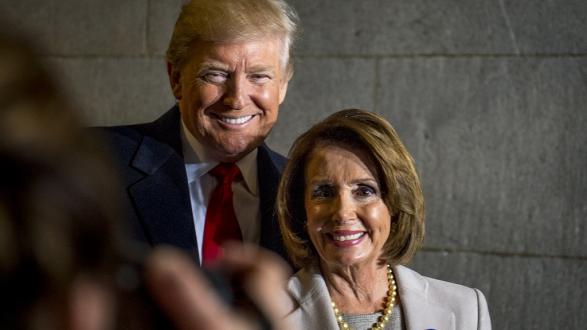In:
Key takeaways
- The midterms were not a show-stopping repudiation of the Republican agenda.
- The new Congress will be more polarized.
- Political infighting and gridlock in Washington will intensify.
- Vote counting continues and how the parties read the results and organize themselves in the coming months remains to be seen.
- The most significant driver of political and policy change will be the economy.
Domestic perspective
The outcome has significant implications for domestic business priorities, such as Tax Cut 2.0 (highly unlikely), fiscal stimulus (more likely), raising the debt ceiling (assured), an infrastructure bill (increased probability, but unlikely), immigration (unlikely), data privacy and net neutrality (unlikely), Obamacare (more stabilization and expansion), drug pricing (action on several fronts likely), and deregulation (more rollback in financial services, less in energy and environmental protection).
International perspective
International business issues will have a different dynamic.
- USMCA is likely to get ratified in 2019. The process will be noisy and perhaps drawn out, as both houses of Congress will have to approve an implementation plan. A new deal is a White House priority and legislators will want to avoid motivating Trump to scrap the deal and pull out of NAFTA, so any changes are likely to be at the margins (e.g. labor provisions).
- U.S.-China economic tensions will get worse. Trade was not a prominent issue in the election and Trump solidified the loyalty of Senators and this will reduce opposition to tariffs. Moreover, the Democratic contingents in the Senate and House have shifted to the left and will be more favorably disposed to a tougher stance on China. With gridlock elsewhere and as the White House gets waylaid by investigations, Trump will be incentivized to use China bashing to maintain control of the political narrative. Finally, the business community, facing a more threatening business environment in China, has not been very united or vocal about protecting free trade with China. So, expect tariffs to be extended in the coming months. Economists have been flagging the potential for recession in late 2019 or early 2020: Declining economic fortunes in the run-up to the general election may motivate Trump to dial back economically destructive tariffs while the administration continues to press nontariff measures (e.g. tighter CFIUS review, visa restrictions).
- More Russia sanctions are likely. A second round of mandated chemical weapons sanctions related to the Skripal attack in the UK is in process. Mueller investigation conclusions or leaks could spur more sanctions. The House Intelligence Committee will restart a Democrat-led investigation into Russian meddling in the 2016 elections. Russian efforts to meddle in the 2018 midterms are likely to come under investigation as well. Last week Facebook and Twitter reported that they detected Russian interventions in the run-up to the midterms, and if such allegations are substantiated, this will trigger new, potentially disruptive sanctions under the Magnitsky Act. Finally, being "tough on Russia” remain one way Senate Republicans will seek to differentiate themselves from the president. It is not clear at this point if any of these drivers would merit highly damaging sanctions targeted at Russia’s financial services or energy sectors.
- Trade negotiations with the EU, UK, and Japan will slowly advance. The Democrats may skirmish with the administration over process issues, but they have not articulated a clear alternative strategy on trade, so there is unlikely to be broad-based resistance. Developments with China and foot dragging in the EU and Japan will have a greater impact on the pace and direction of negotiations.
- Stable relations with Saudi Arabia will remain a Trump administration priority. Democrats in the House will increase scrutiny of the war in Yemen and Trump Organization economic ties with Saudi Arabia and the UAE. The former may lead to limited sanctions or the curtailing of some arms sales and logistical support.
- The election is unlikely to lead to any shift in the administration’s Iran sanctions stance.
Signpost to watch
Economists are warning that after 10 years of growth, the U.S. economy is ripe for a cyclical downturn. Moreover, central bank watchers fret that the Fed may overshoot and raise interest rates too much in the coming months—especially given record volumes of debt issuance and the resulting upward pressure on yields. And, given record deficits, Congress will have limited latitude for additional fiscal stimulus to counter a downturn. A recession in late 2019 or early 2020 could have profound implications for the next general election, given the Trump administration’s and Congressional Republicans’ claims of strong economic stewardship.
_____________________
DJ Peterson is a member of the Pacific Council and the president of Longview Global Advisors.
This article was originally published by Longview Global Advisors.
The views and opinions expressed here are those of the author and do not necessarily reflect the official policy or position of the Pacific Council.




